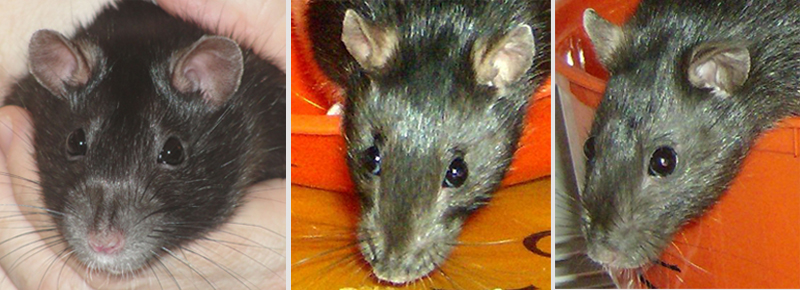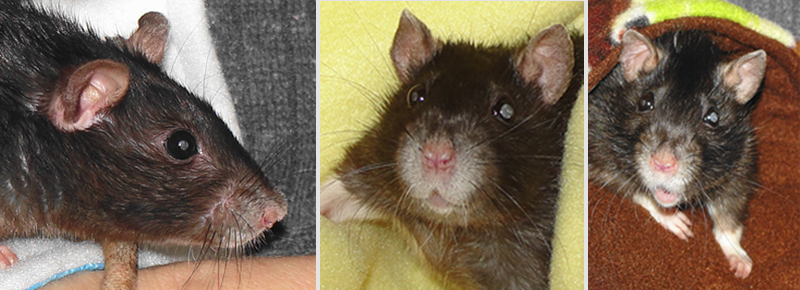Figure 4: Cataracts in aging male rat (Jerry).
Case history and photos
History
Jerry was a SPF tested laboratory male rat, not used in experiments. He was adopted as an adult and neutered; living for 27 additional months with present owner. His date of birth was unknown, but his age was estimated to be over 3 years old at the time of death. Additional health history included a resolved pododermatitist, with treatment, following the development of hind limb weakness.
Clinical signs
A white, cloudy, covering was noticed on the lens of both eyes. The cloudiness initially began with the left eye.
Diagnosis
Bilateral cataracts
Treatment
Jerry was maintained on a healthy diet, and living in a supportive caging environment for safety due to hind limb weakness. No treatment required specific to cataracts.
Outcome
Jerry adapted well to the developing cataracts.
Photos
 Photo on left taken prior to cataract development. Center and right photos taken 10 months later show start of cataract in the left eye. |
 Photo on left shows right eye cataract. Center and right photos show progression of cataracts bilaterally. |
Case history and photos courtesy of Karen Borga


